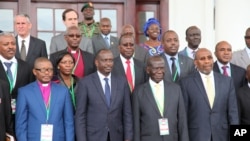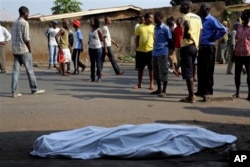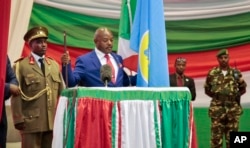Burundi's government negotiator and the opposition came out of the first session of peace talks in Uganda divided over the question of international peacekeepers.
Uganda's President Yoweri Museveni gave the opening remarks, saying that while he recognized the sovereignty of Burundi, it could not be a reason for inaction on the part of the international community.
“One million people dead just here in Rwanda. And we watched, what could we do. Because if we come in we are invading a sovereign country... in Kenya here people died. Here in Uganda Idi Amin killed 800,000 people. Nobody could come in. We were dying under sovereignty,” he said.
The Burundi government delegates say they are fighting insurgents who had attempted a coup. They also say the government is within its rights to look for those perpetrating violence.
However, opposition members and many citizens say the government is committing extrajudicial killings, torture and political violence.
Violence erupted in Burundi last April after President Pierre Nkurunziza made a bid for a third term, despite the constitution limiting presidents to two terms. Nkurunziza was able to run on a technicality and won. Since then, waves of violence have grown increasingly troubling.
The African Union has authorized sending 5,000 peacekeepers to Burundi. Francois Nyamoya, the secretary-general of the MSD opposition party says the peacekeepers are needed to go forward.
Nyamoya says the African Union forces need to arrive to secure the population's well being. He says this will be a condition if dialogue has a chance to continue.
'No' to peacekeepers
Government negotiator Foreign Affairs Minister Alain Nyamitwe says no to peacekeepers.
“The issue of troops has been rejected and it's not up to the opposition to call for troops," he said. "Since when? In which country? Let them say what they want but I can tell you that issue has been resolved. The people of Burundi has rejected. The government has said no. How can they deploy without the consent of the government?”
Monday's session brought together some of East Africa's political heavyweights. Officials from the African Union, United States, European Union, United Nations and the East African Community came together alongside Burundi's government representatives and the opposition.
The next round of talks are scheduled for January 6. However, Burundi's government says that it has yet to commit to the date, and further consultations must take place before continuing dialogue.






